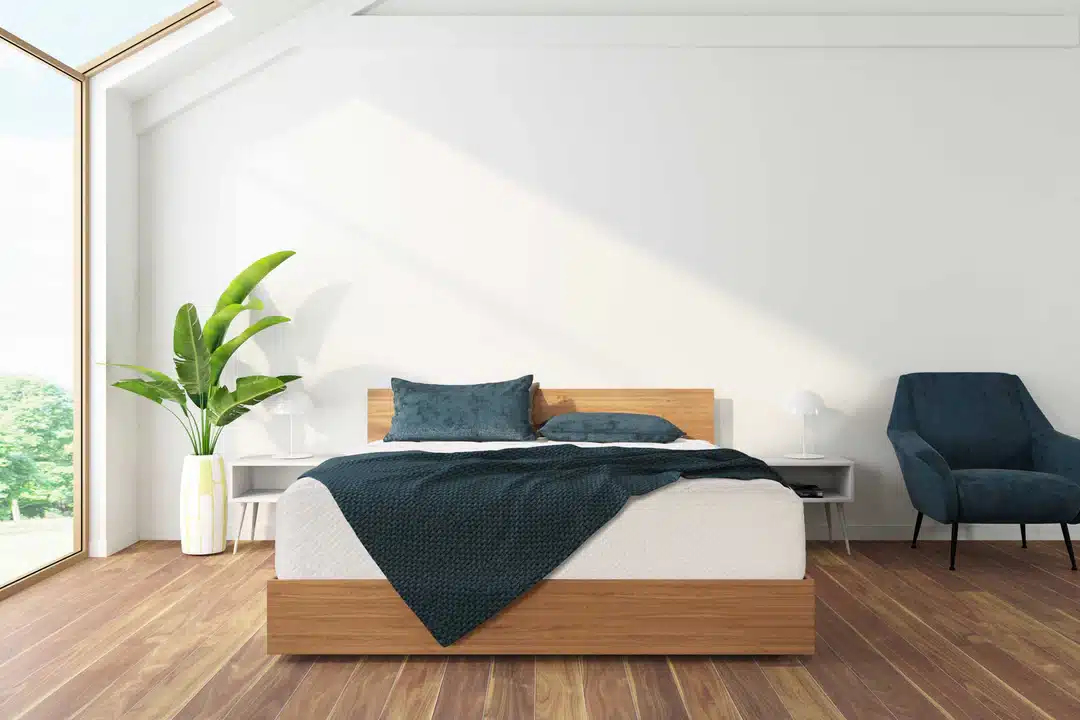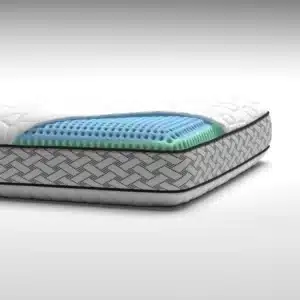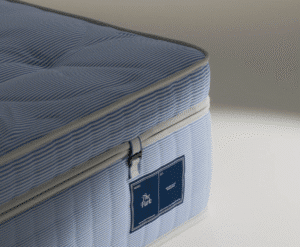The Definitive Guide to Determining the Best Time to Go to Sleep
Establishing the best time to go to sleep is vital for waking up rejuvenated and ready to embrace the challenges of a new day. Adhering to a consistent sleep-wake routine that aligns with your body’s natural rhythms can significantly enhance your overall well-being. Here’s a quick overview for those short on time:
– Consistency is Key: Strive to retire and rise at the same hour every day, including weekends.
– Nighttime Alignment: Ideally, aim to fall asleep around 10 p.m. to sync with your body’s natural circadian rhythms.
– Optimal Sleep Duration: Ensure a nightly sleep period of 7-9 hours for optimum health.
Sleep is often described as the golden chain linking health and well-being. Not only does quality sleep sharpen cognitive abilities, enhance emotional balance, and mitigate the risks associated with chronic illnesses like heart disease and diabetes, but inadequate sleep can lead to fatigue, reduced concentration, and long-term health complications.
My name is Ben Trapskin, and my interest in understanding sleep began with my own struggles with sleeplessness. Through years of research and personal exploration, I founded Yawnder to equip you with effective sleep strategies designed to enhance your quality of life. Are you prepared to delve deeper into maximizing your sleep? Let’s embark on this journey.
Understanding Sleep Cycles: Your Body’s Natural Rhythm
Grasping the intricacies of sleep cycles is essential for optimizing your rest and waking up invigorated. Each night, your sleep encompasses various stages, and understanding these can aid you in planning your bedtime effectively.
Sleep Stages
Sleep is classified into two primary types: Non-REM (NREM) sleep and REM (Rapid Eye Movement) sleep. Each category consists of distinct stages that you transition through multiple times during the night.
– NREM Sleep consists of three stages:
1. N1 (Stage 1): Characterized by light sleep, this phase marks your transition from wakefulness to slumber, lasting about 1-7 minutes. Waking from this stage is relatively easy.
2. N2 (Stage 2): A slightly deeper phase of light sleep, this stage constitutes nearly half of your sleep cycle, where your heart rate slows, and body temperature drops.
3. N3 (Stage 3): Also known as deep sleep or slow-wave sleep, this stage is critical for body recovery, memory consolidation, and immune system support.
– REM Sleep occurs at the end of each cycle, where dream activity thrives, and brain activity mirrors that of the awake state. This stage is vital for emotional regulation and memory processing, with REM time extending with each sleep cycle sequentially.
Circadian Rhythms: Your Internal Clock
Your circadian rhythm acts as the body’s internal clock, regulating sleep-wake patterns across a 24-hour period, influenced by environmental cues such as light and temperature.
– Melatonin Production: This essential hormone rises in the evening to facilitate sleepiness and decreases in the morning to help you wake up.
– Light Exposure: Morning light resets your circadian rhythm, easing wakefulness, while evening light exposure can postpone sleep.
Why Understanding Sleep Cycles Matters
Knowing your sleep cycles can guide you to determine the best time to go to sleep. Aiming for 7-9 hours of sleep implies planning for 4-6 sleep cycles, which last roughly 90 minutes each. This strategy helps you awaken during a lighter sleep stage, minimizing morning grogginess. Aligning your sleep schedule with circadian rhythms enhances sleep quality, ensuring you feel more refreshed upon waking.
The Best Time to Go to Sleep
Why 10 p.m. is Ideal
Research involving 88,000 adults has pinpointed 10 p.m. as the best time to go to sleep. But what makes this timing advantageous?
– Heart Health: Aligning sleep with your circadian rhythm can promote heart health. A study published in the European Heart Journal – Digital Health indicates that individuals sleeping between 10 p.m. and 11 p.m. may face a lower risk of cardiovascular issues.
– Circadian Rhythm Alignment: As Dr. Colleen Lance suggests, diminishing light signals your brain that it’s time for sleep, leading to heightened melatonin production and easing the transition to rest.
– Optimizing Melatonin Production: The surge in melatonin around bedtime at 10 p.m. facilitates easier and more sustained sleep.
Individual Variations
While 10 p.m. may suit many, it is essential to remember that sleep needs are uniquely individual.
– Personal Sleep Needs: According to Dr. Lance, varied sleep requirements exist, affecting what time works best for you. Some thrive on 7 hours; others may need up to 9.
– Natural Night Owls: Individuals with night-owl tendencies may need to gradually adjust their bedtimes to attain optimal health benefits at earlier hours.
Regardless of your chosen bedtime, consistency is paramount. Dr. Lance insists that adhering to a stable sleep schedule enhances sleep hygiene and overall health.
Factors Affecting Sleep Quality
Sleep Environment
Your sleeping environment plays a pivotal role in sleep quality. Focus on these aspects to optimize comfort:
– Temperature: Aim for a cool ambiance (65-68°F) to promote uninterrupted sleep.
– Darkness: Utilize blackout curtains or sleep masks to block disruptive light.
– Quietude: Minimize noise with earplugs or white noise machines to enhance restfulness.
– Bedding: A supportive mattress and pillows are integral for comfort.
Sleep Hygiene Practices
Implementing sound sleep hygiene can boost your sleep quality:
– Consistent Schedule: Maintain consistent bedtimes and wake times daily.
– Routine Activities: Incorporate calming pre-sleep activities, like reading or light stretching, to signal your body to wind down.
– Screen Time Management: Limit blue light exposure from screens to bolster melatonin production.
– Caffeine and Alcohol: Restrict intake in the hours leading to sleep to avoid disruptions in rest.
– Regular Exercise: Engaging in physical activity can facilitate faster sleep onset and deeper slumber—just avoid vigorous workouts close to bedtime.
Calculating Your Ideal Bedtime
Using a Sleep Calculator
A sleep calculator can pinpoint your ideal bedtime based on your required wake-up time. It operates by determining the optimal number of sleep cycles needed (about 90 minutes each) for refreshing rest.
For instance, if you need to rise at 6 a.m., options like 9 p.m., 10:30 p.m., or 12 a.m. could work, allowing for numerous completed cycles.
Lifestyle Adjustments
While sleep calculators provide valuable insights, be sure to personalize your bedtime according to your lifestyle:
– Work Commitments: If you begin work at 9 a.m. and need time to prepare and commute, aim for a 6 a.m. wake-up.
– Social Activities: Factor in evening engagements and adjust your sleep schedule while ensuring you still complete your recommended sleep cycles.
– Embrace Flexibility: Life can be unpredictable; while maintaining consistency is crucial, allow room for adjustments when necessary.
Health Implications of Poor Sleep
Physical health can deteriorate dramatically due to consistent sleep deprivation, including increased risks of weight gain, weakened immune response, and higher chances of cardiovascular complications.
Equally important, inadequate sleep can negatively impact mental well-being, leading to mood disorders and cognitive decline. Sleep fosters memory consolidation and emotional regulation; without it, performance in daily tasks can falter.
If you are grappling with sleep challenges, consulting a healthcare professional is essential. Roughly 50-70 million Americans suffer from sleep disorders, highlighting the importance of prioritizing quality rest for both mental and physical health.
Frequently Asked Questions about the Best Time to Go to Sleep
What is the healthiest time to sleep?
Typically, the healthiest sleep window lies between 10 p.m. and midnight, as this timeframe aligns your body’s circadian rhythms with natural light cycles. Consistency remains crucial here.
Is 10 p.m. to 4 a.m. enough sleep?
For most adults, this duration falls short of the recommended 7-9 hours per night, which could lead to negative effects on mood, cognitive function, and health.
How can I enhance my sleep quality?
Focusing on an optimal environment, maintaining good sleep hygiene, and establishing healthy lifestyle habits can significantly boost sleep quality.
Conclusion
At Yawnder, we assert that consistency in sleep patterns is vital for achieving restorative rest. By exploring the science behind sleep—from understanding cycles to determining the best time to go to sleep—we emphasize the necessity of tailoring a personal sleep schedule to your unique needs.
Why Sleep Consistency Matters
Dr. Colleen Lance highlights the critical role that a regular sleep schedule plays in aligning your internal clock—a key factor in regulating sleep and enhancing overall health.
Finding Your Personalized Sleep Schedule
Ultimately, while 10 p.m. may serve as an ideal bedtime for some, individual circumstances dictate the best approach. Utilizing tools like sleep calculators can guide you in calculating your optimal time to ensure a fulfilling night’s rest.
Practical Steps to Improve Sleep
– Stick to a Consistent Schedule: Retire and rise at the same time daily.
– Create a Relaxing Environment: Ensure your bedroom promotes rest.
– Engage in Calm Activities Before Bed: Introduce routines that signal relaxation.
– Limit Screen Use: Steer clear of devices during the hour before sleep.
If sleep disturbances persist, consult a healthcare professional, who can provide personalized solutions to enhance your rest. Prioritize your sleep schedule—aligning it with your natural rhythms can lead to improved well-being. Sleep peacefully and greet each day with newfound energy!


















